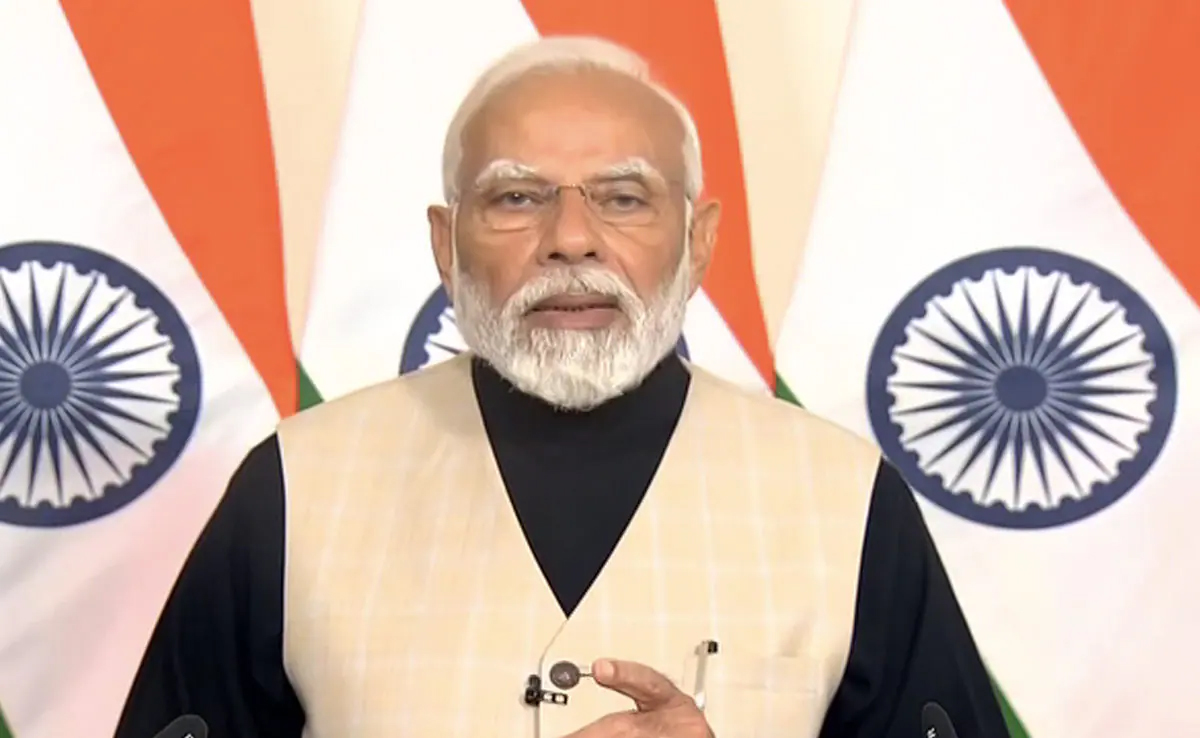 Agencies Agencies
NEW DELHI, Feb 3: Noting that criminals have been using the latest technology for funding and operating across regions, Prime Minister Narendra Modi on Saturday pitched for expanding cooperation between countries for investigation and justice delivery. He also said cooperation can happen even while respecting each other's jurisdiction and asserted that when nations work together, jurisdiction becomes a tool to deliver justice, not delay it.
The rise of cryptocurrency and cyber threats presents new challenges and there is a need for making the justice delivery system more flexible and adaptable, he said.
Speaking at the Commonwealth Legal Education Association (CLEA) - Commonwealth Attorneys and Solicitors General Conference (CASGC) here, he said countries already work with each other in the domain of air traffic control and maritime traffic, and advocated extending this to investigation and justice delivery.
"When we work together then jurisdiction becomes a tool to deliver justice and not to delay it," he said, adding that the nature and scope of crime have seen radical changes.
Sometime ensuring justice in one country requires working with other countries, he said.
He expressed hope that the conference works to ensure that everyone has access to timely justice and no one is left behind.
The 21st century challenges cannot be fought with a 20th century approach, PM Modi said.
Economic crimes in one region are being used to fund activities in other regions, the prime minister highlighted.
"The rise of cryptocurrency and cyber threats are posing new challenges.... There is a need to rethink, reimagine and reform," he told the gathering where Chief Justice of India D Y Chandrachud and other senior Supreme Court and high court judges and law officers were present.
He said there was a need to modernise legal systems that deliver justice.
"This includes making our systems more flexible and adaptable," he said.
Citing ancient Indian beliefs, he said justice is at the root of independent self- governance and without justice the very existence of nation is not possible.
Noting the presence of a large number of delegates from African countries, he said India has a special relation with the African Union. "We are proud that the African Union became part of the G20 during India's presidency," he said.
The prime minister said legal education is a key instrument in justice delivery and pitched for having more women in law schools so that there presence rises in the legal system.
The world needs young legal minds who have diverse exposure, he said, adding that legal education needs to adapt to changing time and technology.
Referring to modernisation of laws to make them in sync with present-day realities, PM Modi said three new legislations have replaced more than 100-year-old colonial criminal laws in India.
Earlier, the focus was on punishment and penal aspects. Now, the focus is on ensuring justice. "Therefore, citizens have a sense of assurance rather than fear," he said.
India, PM Modi noted, has used technology as a tool to reduce litigations which eases burden on the justice delivery system.
In the last few years, India has used drones to map places and provide clear property cards to rural people, thereby reducing disputes and possible litigations. Digitalisation has also helped many courts in India take proceedings online. This has helped people access justice even from far-away locations, he said.
The theme of the conference is "Cross-Border Challenges in Justice Delivery". |
